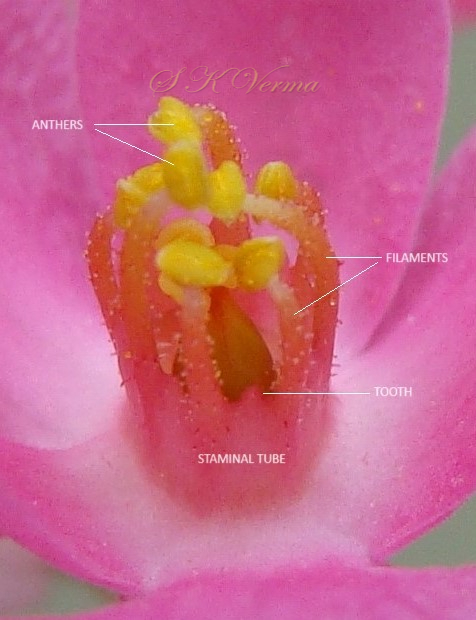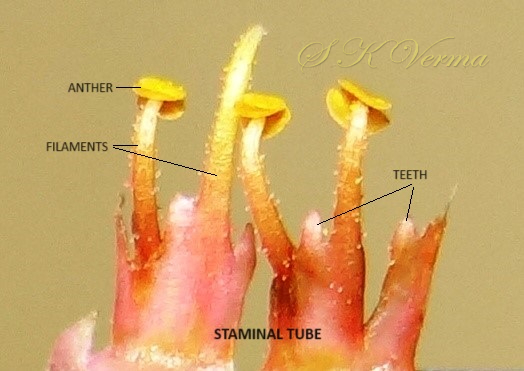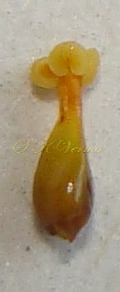ANTIGONON
Antigonon
Endl., Gen. Pl. 310. 1837; Benth. & Hook. f., Gen. Pl. 3: 103. 1883; L. H. Bailey, Man. Cult. Pl. 350. 1949; Fl. Pak. @ eFloras.org Pakistan V 205.
Perennial tendrillar climber. Roots tuberous. Stem scandent, tendril bearing, pubescent or glabrescent. Tendril terminal or axillary, branched. Leaves cauline, large, alternate, petiolate; ochrea usually deciduous, chartaceous; leaf blade broadly ovate to deltate, margin entire, sometimes undulate. Inflorescence terminal or axillary racemes, often clustered near tips of stem, racemes pedunculate, ending in branched tendrils. Pedicels present. Flowers showy, actinomorphic, bisexual, hypogynous. Perianth accrescent in fruit, pink to purple, rarely white or yellowish, campanulate, glabrous; tepals 5, connate proximally, petaloid, dimorphic, outer 3 broader than the inner 2. Stamens mostly 8, rarely more or less; filaments connate by about half their length, forming staminal tube, adnate to perianth tube, glandular pubescent; anthers yellow to reddish, ovate to elliptic. Carpels 3; ovary 3-angled; styles 3, recurved; stigma reniform-capitate. Fruit a 3-angled nut, enclosed in the accrescent papery perianth segments, brown, unwinged, glabrous or pubescent.
4 species
Antigonon leptopus
Antigonon leptopus
Hook. & Arn., Bot. Beechey Voy. 308. 1838; Bailey, Man. Cult. Pl. 351. 1949; Fl. North Amer.@ eFloras.org vol. 5; Fl. Pak. @ eFloras.org Pakistan V 205; A. platypus Hook. & Arn., Bot. Beechey Voy.: 309. 1838; Corculum leptopus Stuntz, U. S. D. A. But. Pl. Industr. Bull. 282: 86. 1913.
Perennial tendrillar climber, herbaceous, base sometimes woody. Stem climbing or sprawling by axillary tendrils, branched, angular, sparsely to densely pubescent, glabrescent or glabrous; tendrils branched. Leaves cauline, alternate; petiole up to 4 cm long, glabrate or pubescent; blades of lower leaves up to 17 cm x 10 cm, upper much smaller, blade simple, ovate, hastate-ovate, triangular or cordate-ovate, apex acute to acuminate, mucronate, margin entire, sometimes undulate, base cordate with rounded basal lobes, minutely pubescent, especially on the nerves abaxially, adaxially nerves impressed, conspicuously prominent abaxially. Stipules reduced to a raised line (ochrea ) round the stem, 0.2-2 mm. Inflorescence axillary or terminal panicle of racemes often clustered near tips of stem, racemes pedunculate, ending into branched tendril; peduncle and inflorescence axis angular, puberulent to pilose. Flowers in fascicles of 3-5 on inflorescence axis. Flowers ca. 1.2 cm across, bright pink and showy, +/- actinomorphic, bisexual, hypogynous, bracteate; pedicels articulated proximally, 3-10 mm long, dilated at base, glabrous or pubescent. Perianth dark pink, campanulate, glabrous; tepals 5, connate proximally, 4-8 mm x 2-6 mm, ovate to elliptic, outer 3 broader than the inner 2, margin entire, apex obtuse, mucronate, perianth accrescent in fruit, 8-20 mm x 4-15 mm. Stamens 8, filaments 3-7 mm long, connate by about 1/2 their length forming a staminal tube with interposed teeth, adnate to perianth tube, glandular-pubescent almost throughout; anthers bithecous, ovate to elliptic, yellowish. Carpels 3; ovary ovoid, trigonous, glabrous, 3-4 mm long; styles 3, free, recurved; stigma capitate, reniform. Fruit a nut, ca. 5 mm long, trigonous, enclosed in accrescent papery perianth segments, brown, unwinged.
Common Names: Coral Vine, Mexican Creeper, Coralita, Bee Bush, San Miguelito Vine, Honolulu Creeper, Bride’s Tears, Chain of love, Hearts on a Chain, Love Vine.
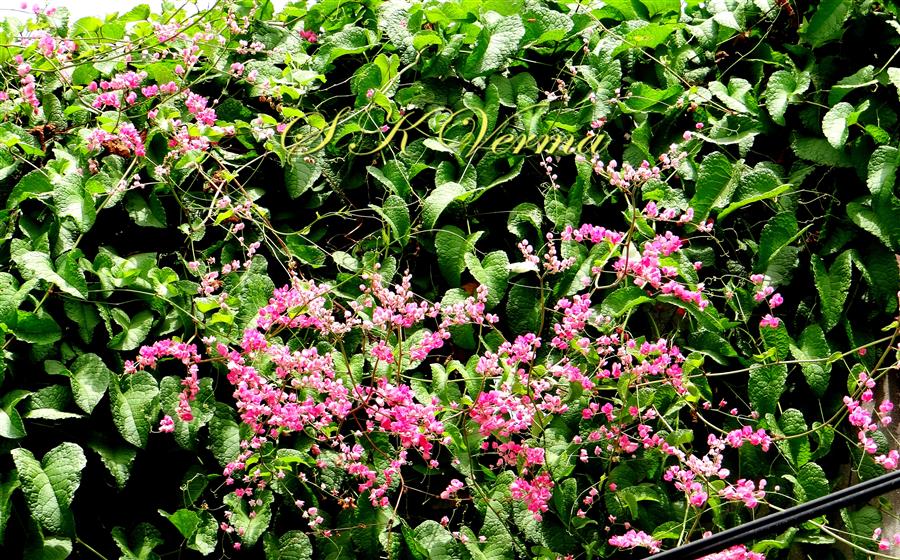
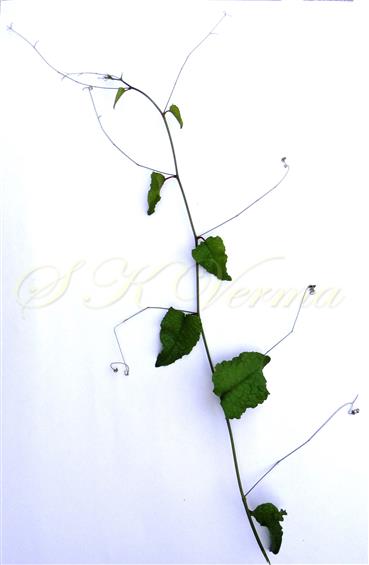
 with tendril- DSC06741.jpg)
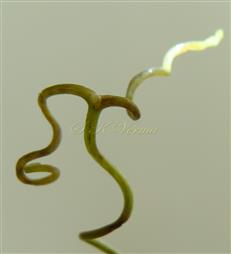
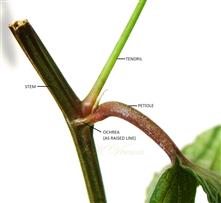
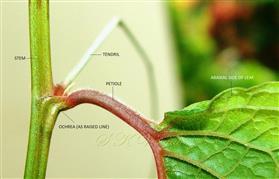
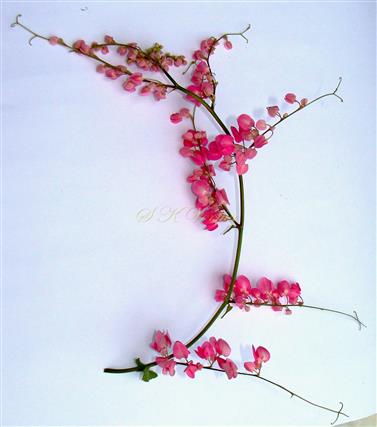
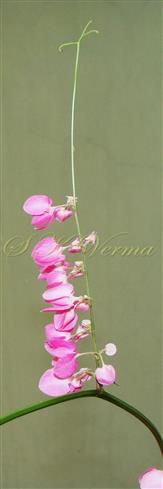
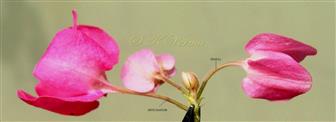
-DSC01473 (1).jpg)
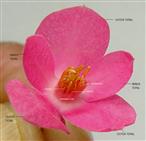






 with tendril- DSC06741.jpg)






-DSC01473 (1).jpg)

